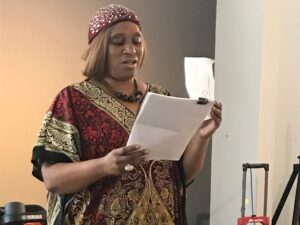 We stand with our impacted community in support of the guilty verdict for taking George Floyd’s life. His murder shocked the conscience of our nation. The guilty verdict has set a new precedent that marginalized individuals can expect and deserve full justice. Witnessing this verdict helps us move further down the road to a better humanity. In the midst of this, we as a community are also undergoing an unprecedented mental health crisis.
We stand with our impacted community in support of the guilty verdict for taking George Floyd’s life. His murder shocked the conscience of our nation. The guilty verdict has set a new precedent that marginalized individuals can expect and deserve full justice. Witnessing this verdict helps us move further down the road to a better humanity. In the midst of this, we as a community are also undergoing an unprecedented mental health crisis.
While we take this time to recover and exhale, let us remain mindful, face forward, and approach systemic racism with a commitment to deny complicit actions in our daily behavior.
The organization I lead, Pathway Homes, is a behavioral healthcare agency built on a foundation of housing and serving those marginalized by poverty and inequity. For 40 years, our mission has embodied a spirit of “recovery” as we partner with individuals on their personal journey toward achieving their dreams. They are impacted by this moment—a moment when we can exhale with a victory cry in celebration of this step towards justice.
As a nonprofit focused on diversity, equity, inclusion and justice, we know that justice implies accountability which starts with applying an equity lens to our work. We do so by elevating the voices of the marginalized individuals we serve to intentionally dismantle systemic racism in our back yard. We need look no farther than Lorraine Johnson, an African-American woman and resident of Pathway Homes for almost 20 years. Before Pathways, she was chronically in and out of hospitals and was homeless at times, finding it difficult to find the care she needed. We offered her housing with support to address her health issues including schizophrenia.
Lorraine explained: “When I was homeless, I had a heightened sense of panic and fear and felt that nobody cared. When you have your own home, you can shut the door and be safe in your surroundings. Now I can concentrate on my mental health treatment. When I wake up in the morning, I am excited about my life and have a sense of hope and optimism. Having housing makes me feel like somebody. I wish everybody with a mental illness could have housing.”
Today, she is a speaker, volunteer and artist, recognized by President Obama for her art and her work to help others. She credits her success to having housing and breaking down barriers to getting help. That’s justice.
By providing marginalized individuals critical access to culturally competent mental health services; assure their right to affordable permanent housing; and elevate diversity, equity, and inclusion to achieve justice, we know we can change the trajectory of lives of those with the greatest need.
George Floyd helped our nation and the world focus on real inequities facing our nation and people. To properly mark his life, we must take continued action to ensure that we learn, recover and do more…for everyone.

